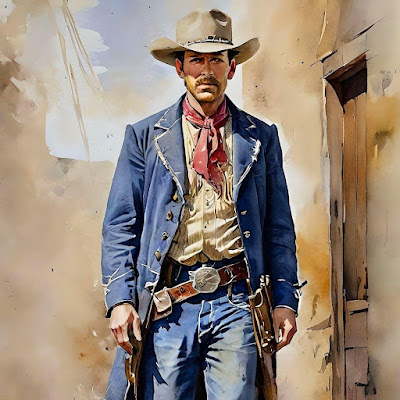Henry Plummer remains one of the most enigmatic and debated figures in Old West history. Born in Maine in 1832, Plummer headed west during the California Gold Rush, where he quickly made a name for himself--first as a lawman, then as a man with a darker edge. By the early 1860s, Plummer found himself in the lawless gold camps of Montana Territory, where he was appointed sheriff of Bannack. Tall, well-dressed, and well-spoken, he seemed the very image of frontier justice. Yet whiskers began to spread that the lawman might also be running with--or even--leading the very outlaws he was sworn to stop.
Those whispers soon turned into accusations. Locals claimed Plummer was the head of a ruthless gang known as the "Innocents," responsible for dozens of stagecoach and gold shipment robberies, as well as cold-blooded killings. Tensions ran high, and with no formal justice system in place, vigilante committees took matters into their own hands. In January of 1864, without a formal trial, Plummer and two of his deputies were hanged by the Vigilantes of Montana. According to some reports, Plummer pleaded for time, promising to whistle in the rest of his gang if they spared him--but it fell on deaf ears.
To this day, debate rages over whether Henry Plummer was truly an outlaw kingpin or simply the victim of frontier paranoia and mob justice. Some historians argue that evidence linking him to the Innocents is thin and largely circumstantial, while others believe he played both sides of the badge to enrich himself. Whatever the truth, his story captures the raw tension of the Old West--where the line between lawman and outlaw could be no thicker than a drawn gun.




5 comments:
Interesting. Too bad we'll never know the truth.
Poor ol' Henry had quite a history. I enjoyed reading about him!
Julie, It would be fascinating to know wouldn't it?
Donna, Glad you enjoyed it:)
Thanks to both of you for reading and commenting:)
Interesting post! I never heard of Henry Plummer, even though I've spent time researching the gold rush days. It would be nice to know if he was a good guy or bad. :)
It would, wouldn't it, Reggi? Thanks so much for stopping by and commenting.
Post a Comment